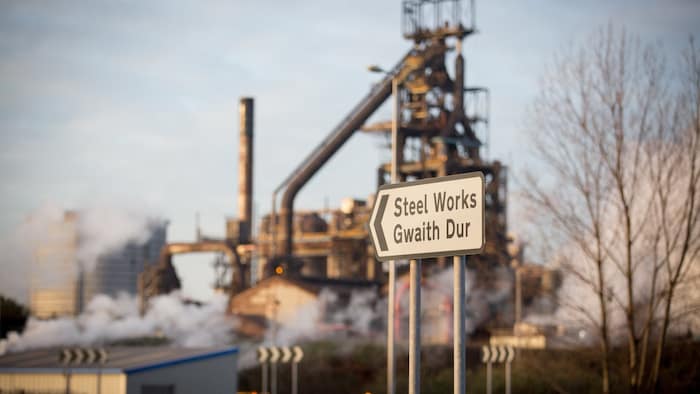
Tata Steel is in talks with its rival ThyssenKrupp about merging their European operations in a deal that appears to give a stay of execution to the stricken Port Talbot steelworks.
Sign up By signing up you confirm that you have read and agree to the terms and conditions, cookie policy and privacy policy.
The Indian conglomerate said on Friday evening that it was exploring a joint venture with its German competitor that would include a large part of its troubled UK arm.
The proposal offers a glimmer of hope to the 11,000 workers at the collection of British factories, which was put up for sale in March following years of losses that had ballooned to as much as £1m a day.
But the announcement does not dispel the cloud of uncertainty that has been hanging over the business for the last three months.
Tata, which said it was also talking to other unnamed industry players, had been expected to either sell the business or close it down by the summer: instead, its talks with ThyssenKrupp signal the start of another period of uncertainty for steelworkers.
Koushik Chatterjee, group executive director at Tata Steel, said the discussions could lead to the creation of a “premium, world-class strip steel business”. But he added: “It is too early to give any assurances about the success of these talks.”
Any deal could lead to large numbers of job cuts as part of an attempt to find further cost savings in the business. A combination would involve Tata’s large Ijmuiden steel plant in the Netherlands.
Friday’s announcement provides some respite for the UK government, which was accused of inaction in the lead-up to the steel crisis and has since offered an array of incentives to keep the business afloat.
In a bid to avert meltdown in the sector, ministers promised to take a stake of up to a 25 per cent in Tata Steel UK and provide hundreds of millions of pounds in loans to either Tata or its successor.
They have also offered to change the law to cut the liabilities of the British Steel Pension Scheme, which has an estimated deficit of £700m and is seen as a burdensome liability.
Sajid Javid, business secretary, said that the possible joint venture was “encouraging”. Mr Javid, who on Friday met Cyrus Mistry, global chairman of Tata, said: “We will continue to work closely with Tata to find a long-term solution for sustainable blast furnace steel manufacturing in Port Talbot.”
But Adam Price, Plaid Cymru’s finance spokesman, called on the government to nationalise the entire business temporarily.
“Merger with the German steelmaker would very likely lead to the closure of the Port Talbot steelworks and the concentration of activity at Ijmuiden, and must be opposed at all costs,” he said.
Tata also said it was separately seeking buyers for two of its smaller divisions in northern England — a specialist steel division in South Yorkshire and two of three mills at a site in Hartlepool that manufactures tube pipelines for the oil and gas industry.
Tata had attracted offers from seven prospective buyers for the wider UK business. They have now been left in limbo after the company failed to say whether the process had been cancelled or was on hold.
A person close to Tata said that the decision to focus on pursuing the joint venture meant that initial efforts to find a buyer for the UK operation were now “pretty much done”.
Bidders included Liberty House, a commodities trading group; JSW Steel of India; veteran US turnround investor Wilbur Ross; and a management buyout team called Excalibur. There were concerns within Tata and Whitehall about the financial strengths of some of the bids.
Roy Rickhuss, general secretary of the Community trade union, urged Tata to “come clean about its intentions”.
“Tata must also recognise the level of frustration, even anger, among the workforce over these delays and uncertainty,” he added.
Tata and Thyssen had previously held talks about a European combination, though the German group had not expressed an interest in Tata’s UK operation.
A ThyssenKrupp spokesperson confirmed it was in talks with Tata Steel.
Additional reporting by Patrick McGee in Frankfurt
